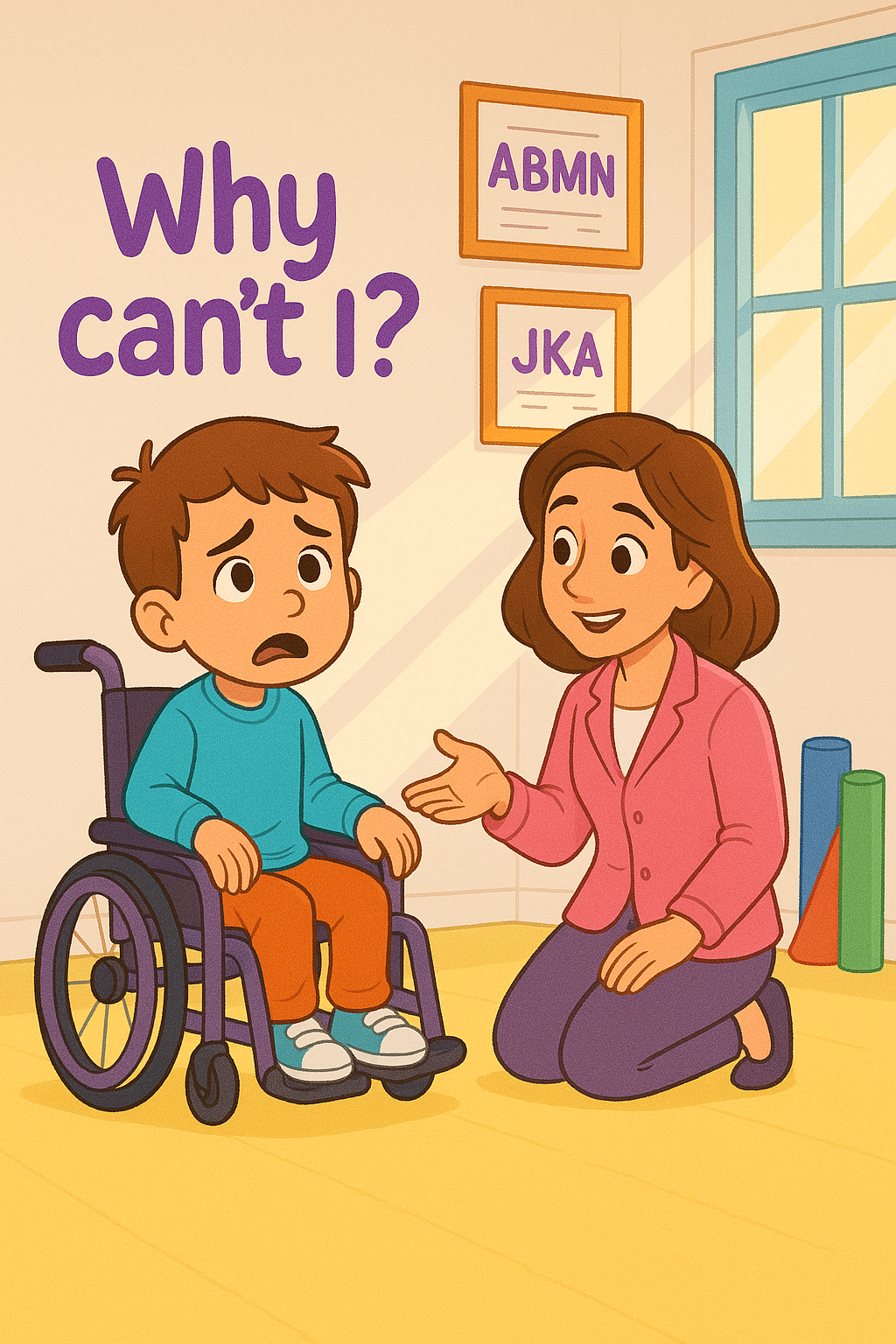The day had started wonderfully with the freshness of the morning and the energy of the sun.
We were already in the middle of the first session of the day with Max, a child diagnosed with cerebral palsy who had undergone hip surgery a month earlier. Due to the pain following the operation, Max had been hesitant to join the sessions, fearing that the pain might return. But as the session progressed, his tension eased, his focus shifted away from the pain, and he began to speak:
“Until I was nine, I had many surgeries and endured a lot of pain. But you know what? This time was somehow the hardest (!!!). And unfortunately, I had to spend my vacation once again in the hospital and in therapies! It was not fun at all.”
His gaze got caught on a ray of sunlight that pierced through the room like a sword of light. He fell silent again, lost in thought.
As I was still thinking about how to respond, he suddenly asked:
“Why can’t I live like normal kids?”
The questions children ask me in my work are always deep and meaningful for their age. I often think about them for a long time or even do research, because I strongly believe that my answers can positively influence their lives.
Like many others, I felt uncomfortable at first with this difficult question. The words stuck in my throat. I hesitated because I didn’t want to give a rushed answer and make a mistake. I was aware that he trusted me and that my answer was important to him. Fortunately, this was not the first time I had heard this question, so I was prepared.
If you have a child or someone with special needs in your life, I’m sure you’ve heard this question or something similar—or you will at some point. When that moment comes, I want to offer you a guide on how to respond with a calm voice, without tears in your eyes, and with confidence. This is a method I’ve lived myself and seen positive outcomes from.
When a child or person with special needs asks this question, the most important thing is to show that you understand and take their feelings seriously. Here are some suggestions for responding with empathy and support:
1. Show that you understand their feelings
The reason the child is asking you this question is because they believe you can understand and give a trustworthy answer. Emphasize that you understand and know this is hard for them. Let them know their feelings are valid and that it’s totally okay to feel that way. Once the child feels understood, they will likely want to share more and feel some relief. Let them speak. Listen…
After acknowledging and accepting the child’s negative emotions, gently shift their focus to more positive thoughts. For example, you can say:
“I’m trying to understand how you feel. Sometimes it can be hard to be different, but that doesn’t change your worth.”
2. Explain that being different is not a bad thing
You can continue the conversation with:
“Actually, there’s no such thing as ‘normal’; everyone has their strengths and challenges, and everyone lives their own life. You have wonderful qualities too. Sometimes you do things differently, but you can accomplish so much.”
Emphasize that the child is just as special as everyone else.
3. Remind them of their strengths
Say:
“Your disability doesn’t define you. You are so much more than that.”
Remind them of one of their strengths they are proud of. For example:
“You’re such a loving person, and people like you because of that.”
Then ask:
“What do you think is your greatest strength?”
This helps the child shift their focus from negative thoughts and recall what makes them strong. Ask for examples of times they felt proud or happy.
4. Give hope and offer alternatives
Explain that everyone has obstacles in life, but through persistence and finding their own path, success is possible. Say:
“You might not be able to do everything like everyone else, but together we can find new ways for you.”
Talk about future plans and how you want them to be involved. If you already have ideas, share them and add:
“We’ll keep discovering all the things we can do together.”
5. Show your love and support
By making plans for the future, you’ve already given them hope and shown love. Add:
“I’m always here for you, and I love you just the way you are.”
And to close, say:
“You are so valuable to me, and you make my life more beautiful.”
You’ll see that this conversation not only helps the child feel better and supported, but also reminds you both that you’re on this journey together and mean a lot to one another.
Not just your child—you, too, will feel stronger, more motivated, and happier.
If you’ve also used an approach that helped in similar situations, I’d be very happy if you shared it with me.
With love…



